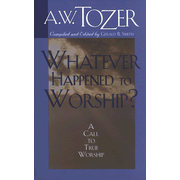 |
| Pastor Joshua Teis |
This is an outsourced post from Ministry127.com by Pastor Joshua Teis of the Southern Hills Baptist Church.
Brother Joshua’s Bio:
Joshua Teis surrendered to full-time ministry at the age of fifteen. Pastor Teis planted Southern Hills Baptist Church in Las Vegas, Nevada, five years ago. Southern Hills Baptist Church has experienced the blessing of God with tremendous growth and many souls saved.

Content With God – Part 1 The first sermon I ever preached was from Exodus 16. I was only 16 years old when I came back from camp and informed my father, who was a pastor, that God was calling me into the ministry. His response was to put me in the pulpit the following Sunday evening. With no training in sermon preparation, I began searching the Scriptures desperately trying to find something that had meaning to me personally. Growing up in a pastor’s home, I felt I related with the subject matter of murmuring people. Many were the nights that I saw my father hurt by members of his church who refused to get right with God. The account of the children of Israel murmuring against Moses seemed to resonate with me. I concluded that it was my job to straighten out the church and inform them of God’s impending judgment if they continued in their current path of complaints and criticisms.
After the sermon, my father sat me down in his office to critique my message. I can remember much of our conversation that night, but what stands out most is my father’s lack of appreciation. I was shocked. I had let those people have it! I had made the message clear. I had pointed toward the back of the auditorium and said, “If you don’t like it . . . there’s the back door.” I had preached on murmuring from the perspective of the preacher and perhaps not from God’s perspective. Recently, the Lord allowed me to return to this passage, and this time I saw the beam and not the moat.
Over the past few years, I have noticed my own lack of contentment in the ministry that God has given me. I have been convicted, and I have repented. I now wish to share my journey and the wonderful truth of being content with God.
Exodus 16 opens as the children of Israel are leaving the beauty and 70 palm trees of Elim and entering into the desolate wilderness of Sin. It appears that Israel only brought with them a month’s supply of food. They had left Egypt on the 15th day of the first month and now they are one month into their journey, afraid and without food.
“And they took their journey from Elim, and all the congregation of the children of Israel came unto the wilderness of Sin, which is between Elim and Sinai, on the fifteenth day of the second month after their departing out of the land of Egypt.” Exodus 16:1
This is what prompted the outpouring of criticism from the children of Israel towards the Lord’s leadership team. They cried out with discontentment about their present situation; and wished for death and slavery rather than to be starved to death in the wilderness. The most obvious problem with the attitude of the nation of Israel at this moment is that they have completely forgotten the fact that God will always provide where He chooses to guide.
“And the whole congregation of the children of Israel murmured against Moses and Aaron in the wilderness: And the children of Israel said unto them, Would to God we had died by the hand of the LORD in the land of Egypt, when we sat by the flesh pots, and when we did eat bread to the full; for ye have brought us forth into this wilderness, to kill this whole assembly with hunger.” Exodus 16:2-3
God’s mercy is ever evident throughout the Old Testament. Having full right to execute judgment upon the faithlessness of these rebellious children, God instead provides an incredible miracle of provision.
“Then said the LORD unto Moses, Behold, I will rain bread from heaven for you; and the people shall go out and gather a certain rate every day, that I may prove them, whether they will walk in my law, or no.” Exodus 16:4
But there was a catch. The Lord allowed this miracle to test the nation. He desired to see if they would be obedient to His commands, or if they would rebel and choose to ignore God’s warnings.
Discontentment is a disease. Like a cancer, it can begin in the deepest parts of man and remain hidden quite nicely for some time. Yet discontentment will grow. The children of Israel had developed an attitude of discontentment over the past four hundred years while in bonds in the land of Egypt, consistently crying out to God to send a deliverer and save their nation from the horrors of slavery. God had freed them from that terrible fate and had delivered them by the hand of Moses. They were now free to follow God and trust His care. They failed. The cancer of discontentment had entered their hearts, and they began to see this amazing opportunity of freedom as a burden they must carry.
I imagine that as the food supply was getting low, the people of Israel began to wonder what God was going to do. I suppose that as a mother fed the last meal to her children she was anxious about the future of her family. Only thirty days into the journey the children of Israel lost all faith in God who performed the ten plagues of Egypt. A promise was not enough to slake the thirst for physical security, so they grew discontented and begged God that they might return to Egypt.
This is part one of this article. Be sure to check back for part two.
How Have You Overcome The Seasons Of Discontentment?
Related articles
- Do Pastors Still Mourn Over Sin (theworkingpastor.com)
- Thou Preparest A Table (davidsmallwood.blogspot.com)
- Turning Fear into Faith (ministry127.com)
 |
Whatever Happened to Worship?
By A.W. Tozer / Wingspread Publishers Decrying much of contemporary worship as entertainment, Tozer says, “When we are worshipping…if the love of God is in us and the Spirit of God is breathing praise within us, all the musical instruments in heaven are suddenly playing in full support.” Originally preached as sermons at Avenue Road Alliance Church in Toronto, the chapters of Whatever Happened to Worship convey Tozer’s attitude and thoughts on Christian worship. |






